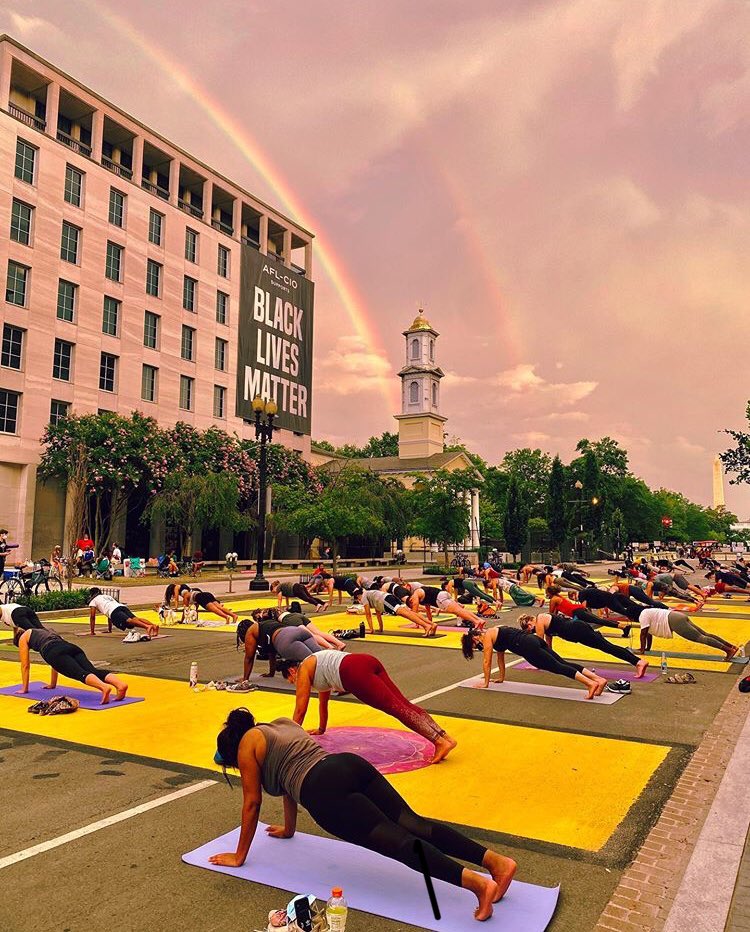
Practicing yoga on the BLM plaza, Washington, D.C.
Sheena Calvert is the kind of professor who inspires you to dig five levels deeper, to explore an idea from twenty different perspectives before you’ve even realized it.
One of her tricks is asking you what if questions. And one what if has stayed with me since my last class with her three years ago.
What if design evoked emotions?
Living and working in Washington DC—just across the street from the White House, in fact—I witnessed a piece of design not only being created as a result, and in response to emotions, but also as a platform for embracing emotions and igniting change.
This was work produced as a result of feeling—anger, distrust, not being recognized or heard. In the words of Mayor Muriel Bowser of Washington DC:
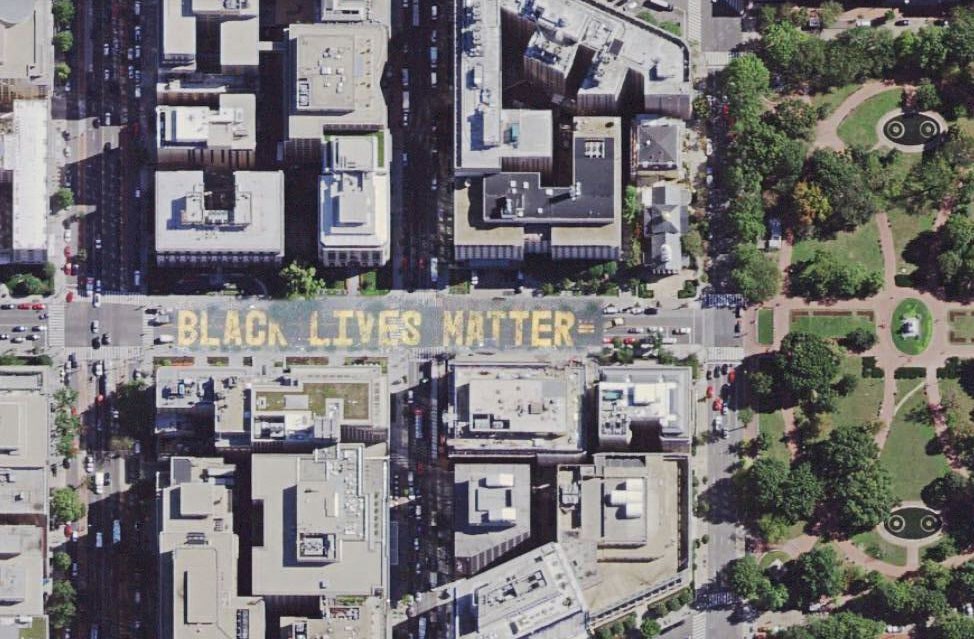
Aerial and satellite images downplay the mural’s scale; on the street, it is immersive and overwhelming. Source: Apple Maps
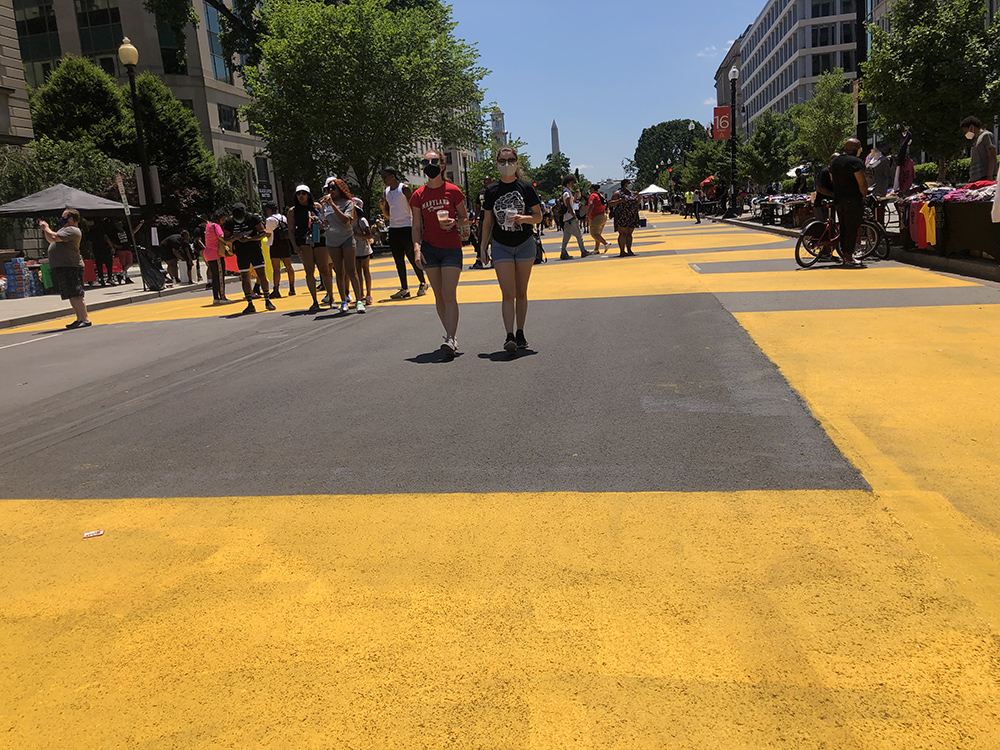
Walking along the BLM plaza.
The statement painted on the pavement was a message to the American people that black lives matter, black humanity matters, said Mayor Bowser in an interview, and we as a city raise that up.
There is a specific group of people in the White House that are also within the intended audience, here: this particular group has mostly been seen flying in and out of the White House grounds on helicopters. They may not see the signs and posters on the street, or in the news and social media, but the large yellow letters are designed to be readable even (perhaps especially) from their daily commutes. In this context, type becomes both a statement and a visual manifestation of an ongoing movement for Black freedom.
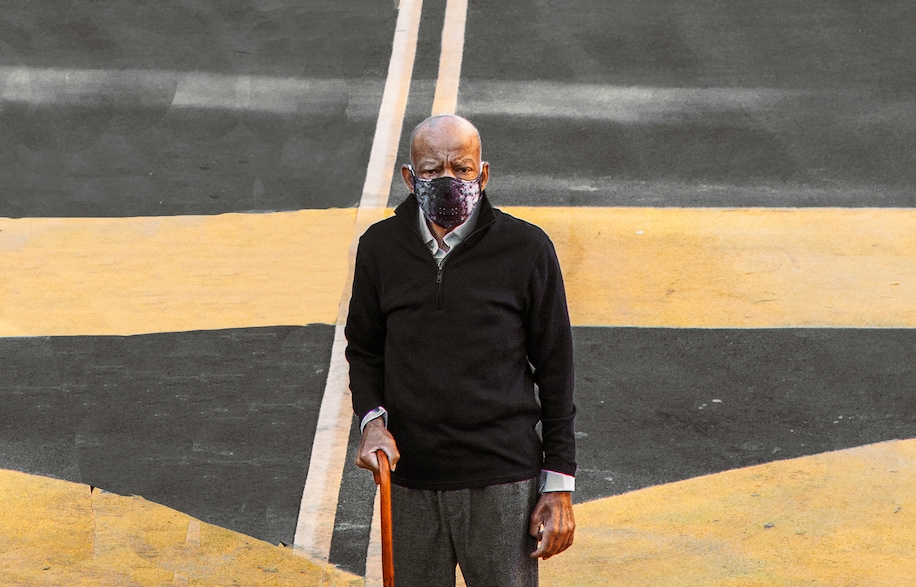
Gary Williams Jr.’s portrait of Rep. John Lewis standing in Black Lives Matter Plaza on June 7. (Gary D. Williams Jr./Creative Theory Agency)
Because of its proximity to the White House, this area has always been a gathering place for protesters. Today, these letters—with a cap hight of approximately thirty-five feet, spanning two city blocks in downtown DC, and painted by eight local artists—frame an urban center that’s been transformed into a social and spatial platform for hope and belonging. The large typographic mural itself has become a destination for local and visiting artists, advocates, and local residents: from movie nights, watch and learn screenings and panel discussions to yoga classes, dance parties, and a host of cultural celebrations and commemorations, this installation has helped to raise awareness not only about the racial injustice but has ignited further conversations and inspired other cities to produce their own murals and installations.
Following Washington DC, several other US cities had the statement painted on their streets. New York City’s mayor planned on naming a street in each borough, “Black Lives Matter.” From Los Angeles, to Brooklyn, Ashevhille, or Winston-Salem North Carolina, the statement painted on the streets have been visual manifestation of communities coming together and demanding change.
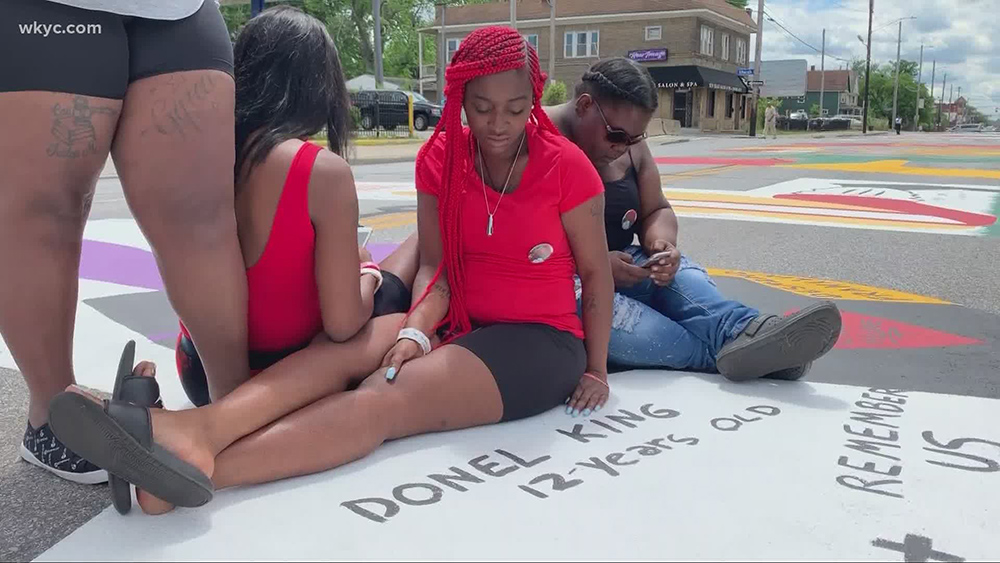
“Grieving mother finds comfort after seeing her son's name in Cleveland Black Lives Matter mural” From WNBC Cleveland, Ohio
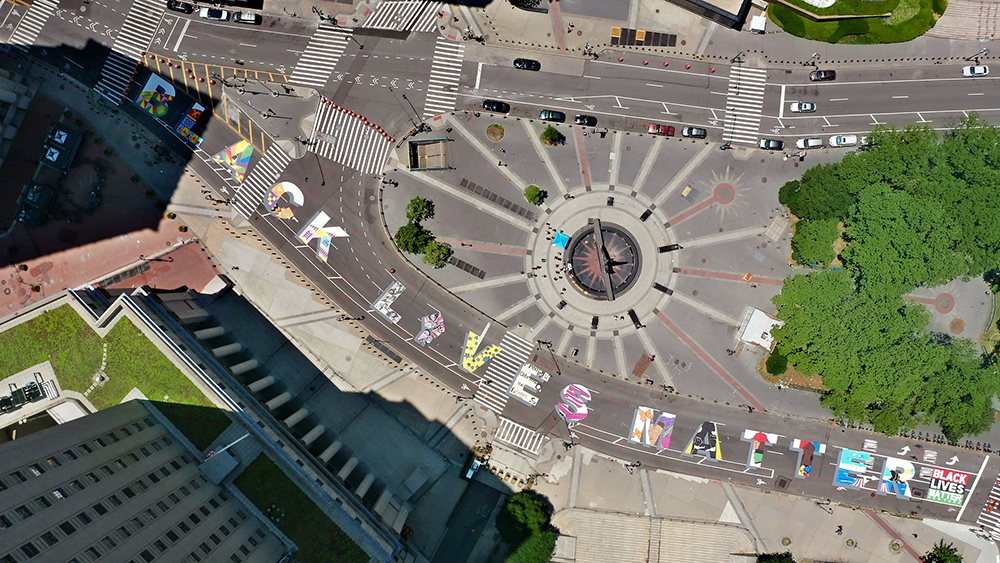
The Foley Square street art in Lower Manhattan. Topiary Productions / Manhattan Borough President
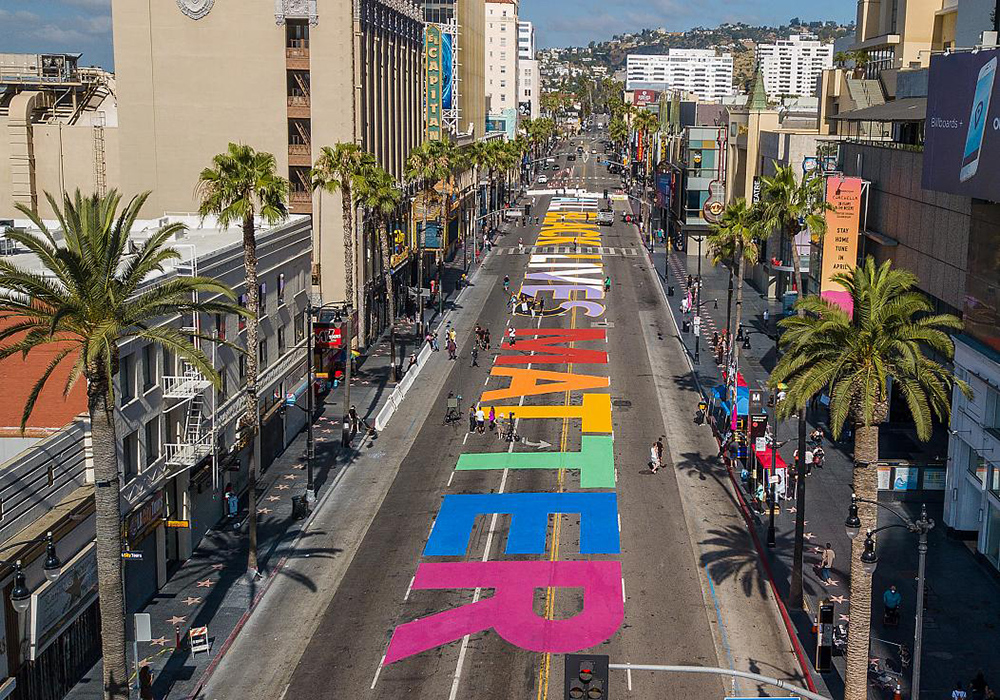
Los Angeles, California (ROBYN BECK/AFP)
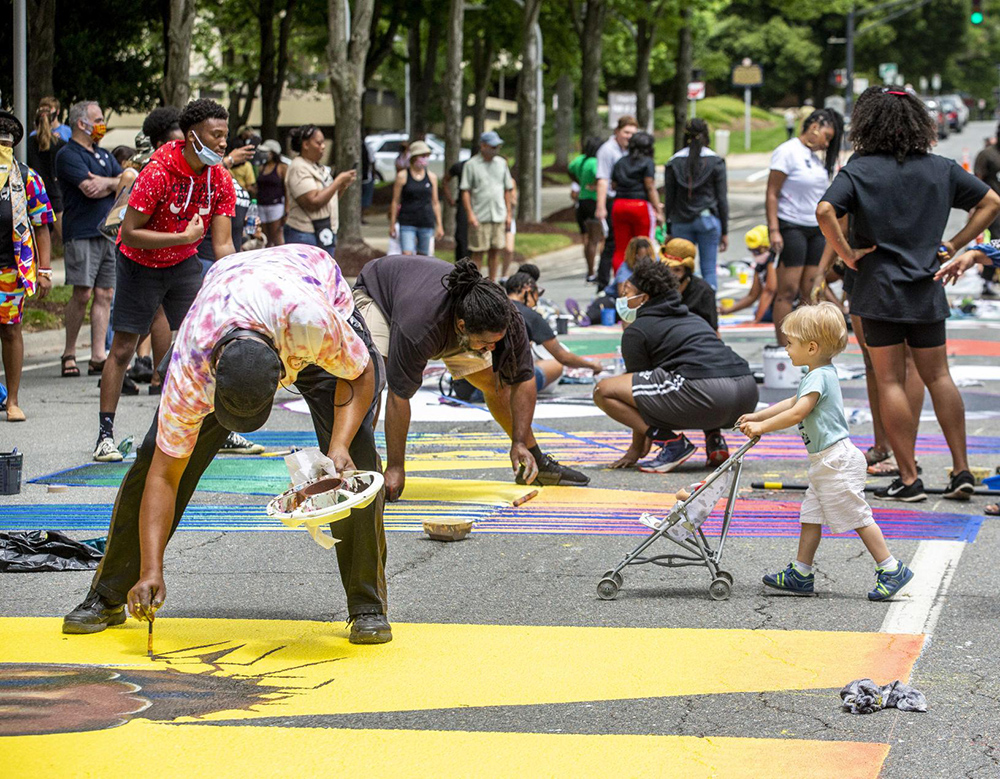
“Black Lives Matter” on Main Street in front of City Hall in Winston-Salem, NC. Woody Marshall/Lee Newspapers
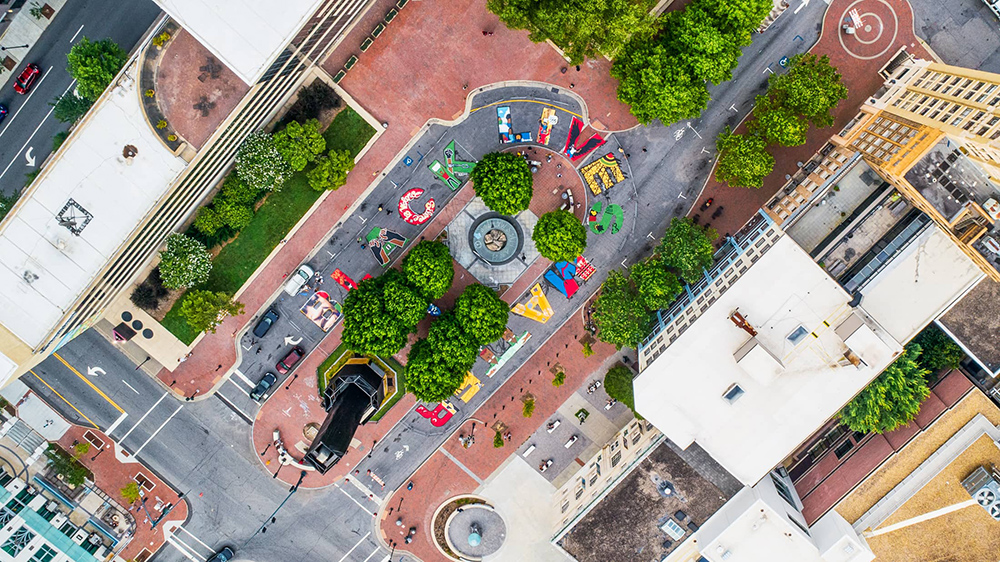
Asheville, North Carolina. Image by Reggie Tidwell, Curve Theory.
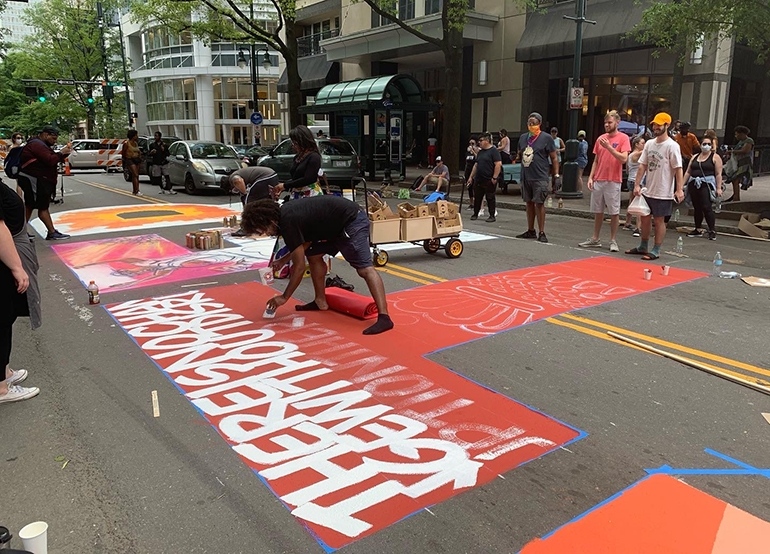
CHD:WCK! puts words in a letter in Charlotte, NC. (Photo by Kate Galindo)
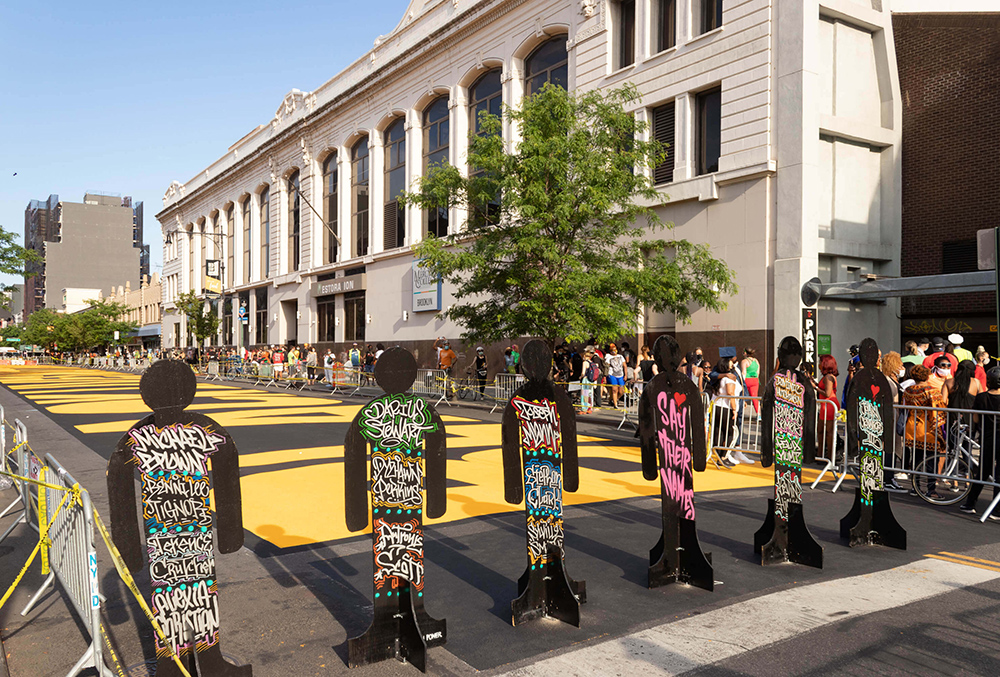
The Black Lives Matter mural on Fulton Street in Bed Stuy, Brooklyn, New York
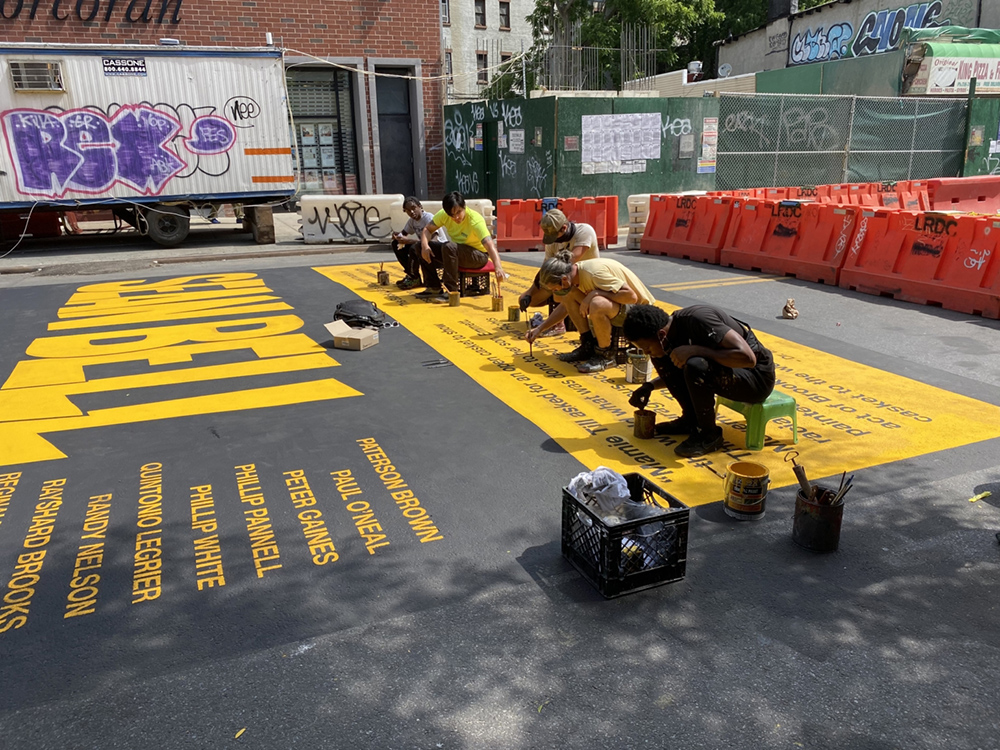
Community volunteers touch up text on the mural on Wednesday (photo by Valentina Di Liscia for Hyperallergic)
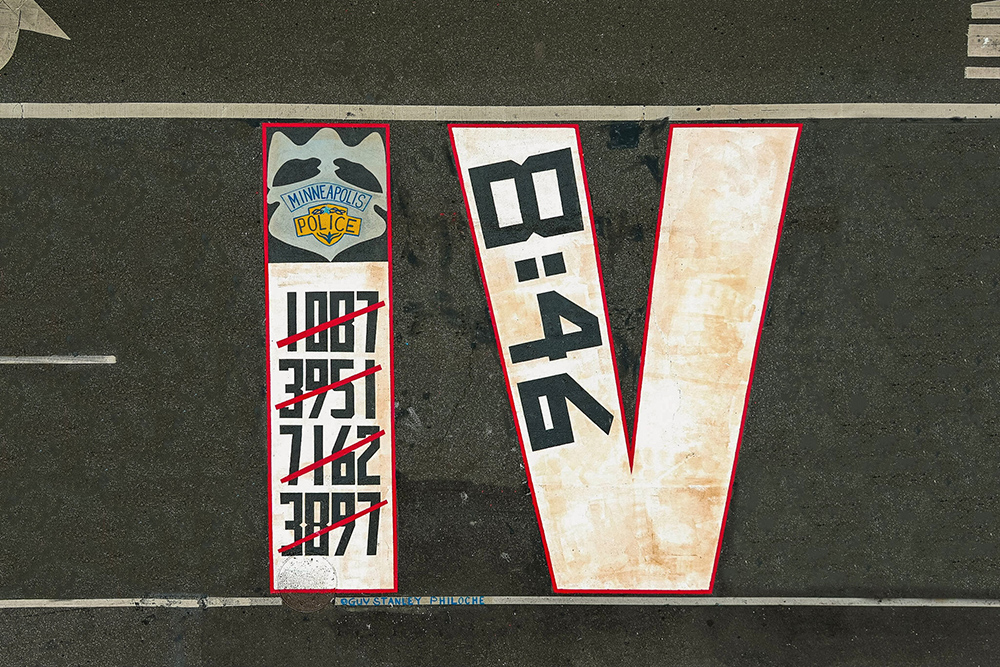
Harlem, New York. Alon Sicherman for New Kingston Media.
